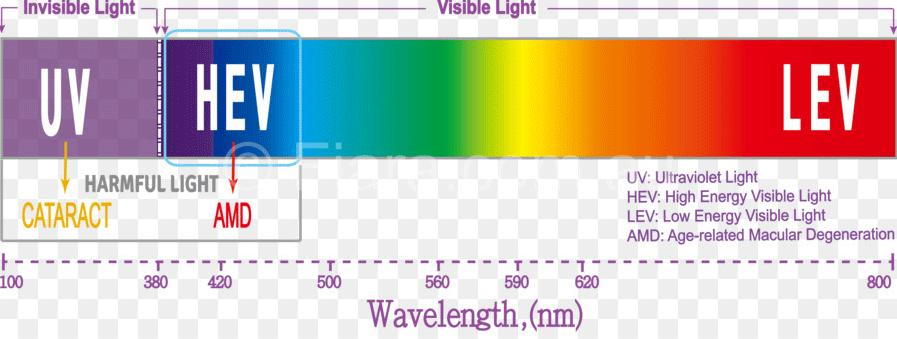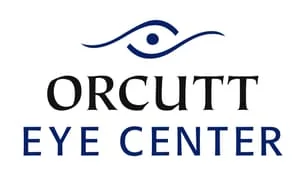
Survey says: 60% of American adults are on their digital devices more than six hours per day, with about 30% of those individuals exceeding 10 hours per day. One particular interest is the effects of high energy visible blue light (HEV). Researchers and scientists continue their efforts in studying what effects prolonged exposure to HEV from smart phones, tablets and computers actually does to us. Do these devices give off enough HEV to trigger damage to our visual systems and a decline in our general health?. HEV wavelength is in the violet and violet blue end of the light spectrum, and it is found everywhere! For example 35% of cool white LED emissions are in the HEV range compared to incandescent bulbs at less than half. The greatest exposure to HEV comes from the sun.
Based on current research, we can divide the effects of HEV into three broad categories: #1.circadian rhythm modulation(sleep and awake) with associated impacts on systemic health. Many factors affect the human sleep cycle. HEV exposure is a crucial component that has direct relevance, having a significant impact on both quality of sleep and melatonin secretion. #2.ocular effects.A fortunate part of aging process is the natural yellowing of the human lens. This decreases the amount of blue light reaching the retina, but, also with aging, the density of the macular pigments decreases, thus leaving the eye vulnerable to HEV's toxic effect. Caution should be exercised, however, because in spite of all available research into the relationship between HEV and AMD,the evidence is still inconclusive.
#3. medical effects leveraged in the treatment of certain disease processes such as jaundice and skin conditions.
So, to ensure blue light exposure doesn't become detrimental, diet is one part of the key. You should be eating naturally occurring carotenoids, foods high in omega-3 fatty acids and phytoflavenoids while decreasing risky behaviors such as diets high in saturated and trans fats. Smoking as well as unprotected sun exposure also puts you at higher risk. By changing or having a diet that consumes foods higher in lutein and zeaxanthin, the body becomes better able to form additional macular pigmentation that can protect against macular degeneration due to blue light absorption, reduce photo-oxidative stress and subsequently stabilize the retinal pigment cell membranes(RPE). You can also reduce the exposure to blue light by incorportating smart in-home lighting options, blue light blocking lenses and other technologies.(Information credit Dr. Bill Hefner).
